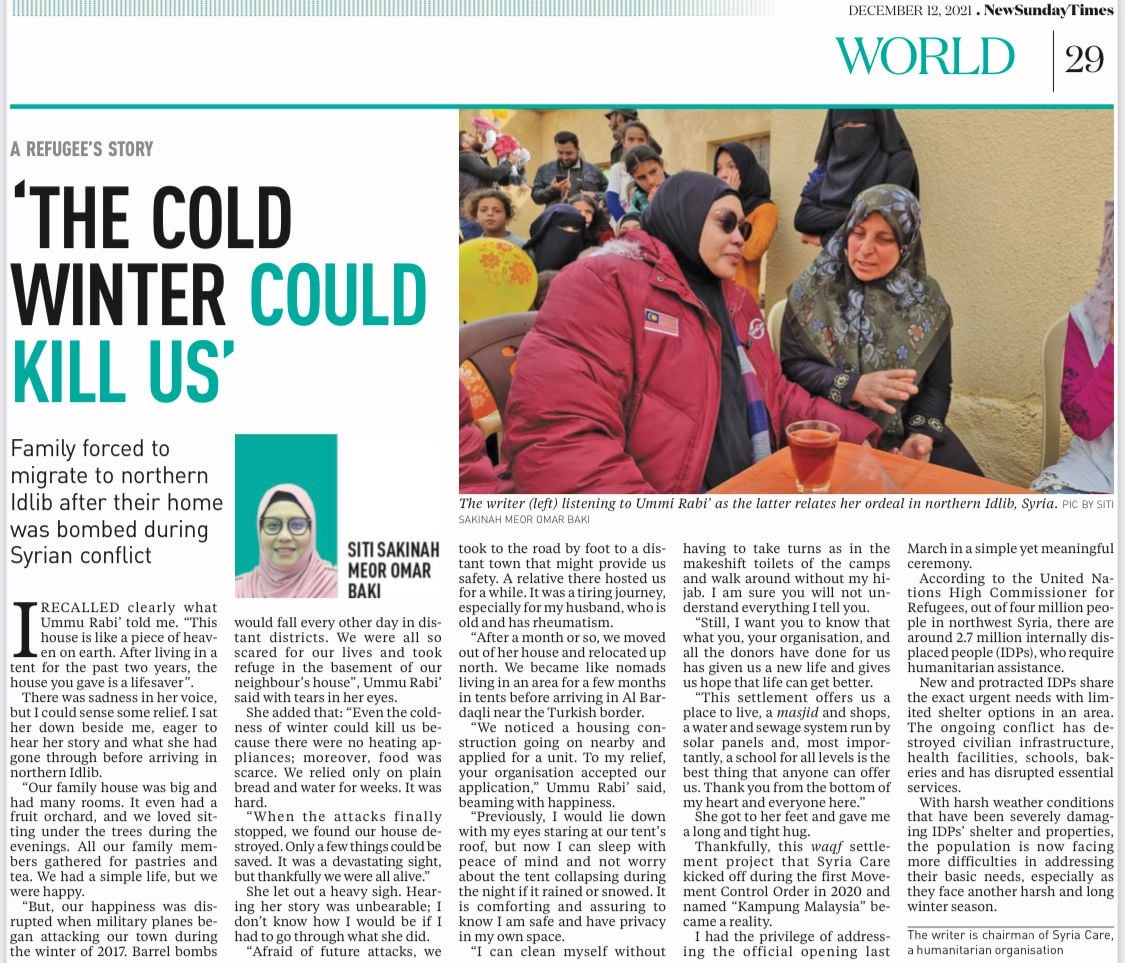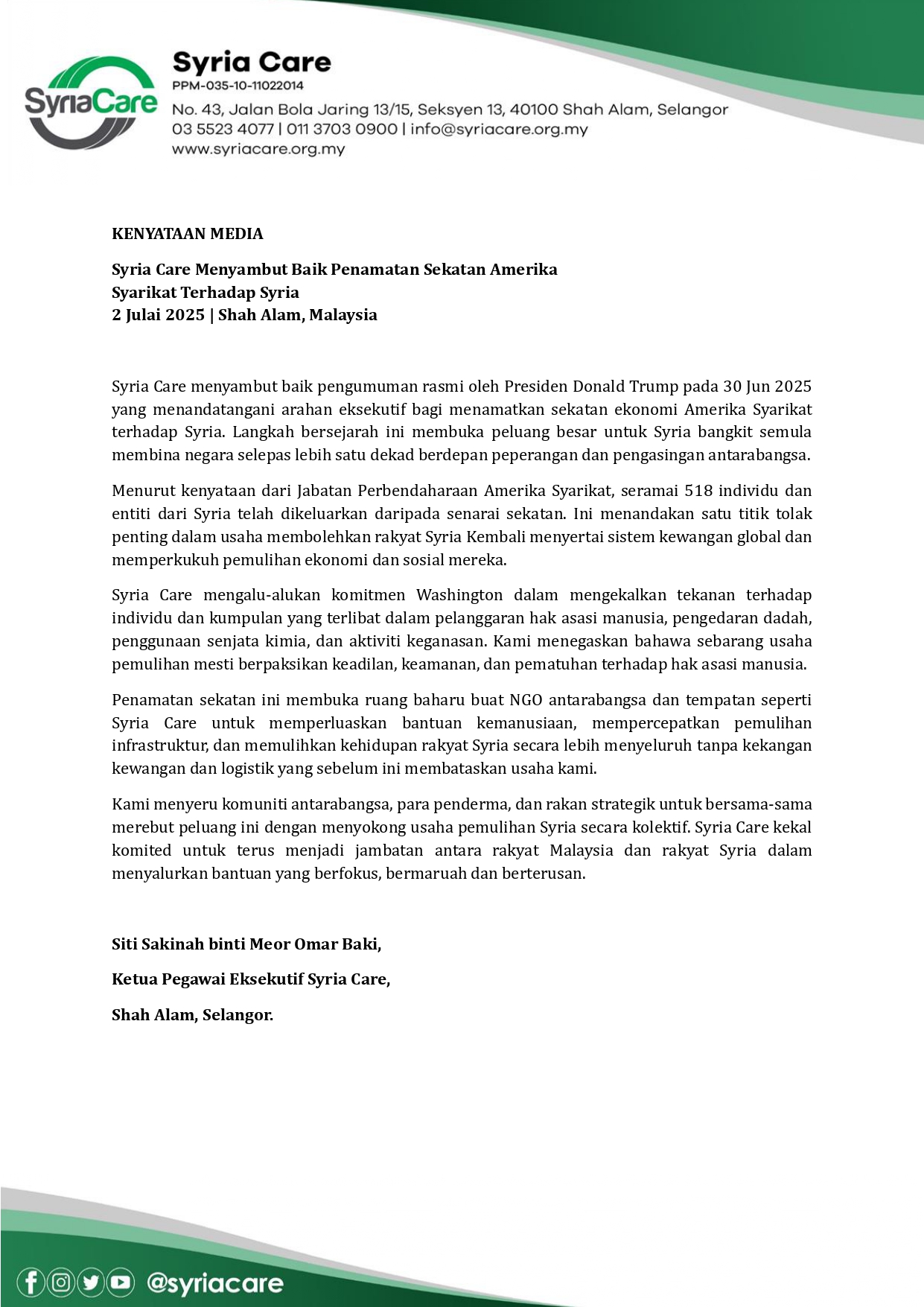I recalled clearly what Ummu Rabi’ told me. “This house is like a piece of heaven on earth. After living in a tent for the past two years, the house you gave is a lifesaver”.
There was sadness in her voice, but I could sense some relief. I sat her down beside me, eager to hear her story and what she had gone through before arriving in northern Idlib.
“Our family house was big and had many rooms. It even had a fruit orchard, and we loved sitting under the trees during the evenings. All our family members gathered for pastries and tea. We had a simple life, but we were happy.
“But, our happiness was disrupted when military planes began attacking our town during the winter of 2017. Barrel bombs would fall every other day in distant districts. We were all so scared for our lives and took refuge in the basement of our neighbour’s house”, Ummu Rabi’ said with tears in her eyes.
She added that: “Even the coldness of winter could kill us because there were no heating appliances; moreover, food was scarce. We relied only on plain bread and water for weeks. It was hard.
“When the attacks finally stopped, we found our house destroyed. Only a few things could be saved. It was a devastating sight, but thankfully we were all alive.”
She let out a heavy sigh. Hearing her story was unbearable; I don’t know how I would be if I had to go through what she did.
“Afraid of future attacks, we took to the road by foot to a distant town that might provide us safety. A relative there hosted us for a while. It was a tiring journey, especially for my husband, who is old and has rheumatism.
“After a month or so, we moved out of her house and relocated up north. We became like nomads living in an area for a few months in tents before arriving in Al Bardaqli near the Turkish border.
“We noticed a housing construction going on nearby and applied for a unit. To my relief, your organisation accepted our application,” Ummu Rabi’ said, beaming with happiness.
“Previously, I would lie down with my eyes staring at our tent’s roof, but now I can sleep with peace of mind and not worry about the tent collapsing during the night if it rained or snowed. It is comforting and assuring to know I am safe and have privacy in my own space.
“I can clean myself without having to take turns as in the makeshift toilets of the camps and walk around without my hijab. I am sure you will not understand everything I tell you.
“Still, I want you to know that what you, your organisation, and all the donors have done for us has given us a new life and gives us hope that life can get better.
“This settlement offers us a place to live, a masjid and shops, a water and sewage system run by solar panels and, most importantly, a school for all levels is the best thing that anyone can offer us. Thank you from the bottom of my heart and everyone here.”
She got to her feet and gave me a long and tight hug.
Thankfully, this waqf settlement project that Syria Care kicked off during the first Movement Control Order in 2020 and named “Kampung Malaysia” became a reality.
I had the privilege of addressing the official opening last March in a simple yet meaningful ceremony.
According to the United Nations High Commissioner for Refugees, out of four million people in northwest Syria, there are around 2.7 million internally displaced people (IDPs), who require humanitarian assistance.
New and protracted IDPs share the exact urgent needs with limited shelter options in an area. The ongoing conflict has destroyed civilian infrastructure, health facilities, schools, bakeries and has disrupted essential services.
With harsh weather conditions that have been severely damaging IDPs’ shelter and properties, the population is now facing more difficulties in addressing their basic needs, especially as they face another harsh and long winter season.
Siti Sakinah Meor Omar Baki
Chairman of Syria Care
Full article: https://www.nst.com.my/opinion/columnists/2021/12/753502/cold-winter-could-kill-us




![Kenyataan Media Syria Menuju Masa Depan Lebih Stabil Dengan Gabungan Sdf & Kerajaan Baru[1] Page 0001](https://syriacare.org.my/wp-content/uploads/2025/03/KENYATAAN-MEDIA-SYRIA-MENUJU-MASA-DEPAN-LEBIH-STABIL-DENGAN-GABUNGAN-SDF-KERAJAAN-BARU1_page-0001-scaled.jpg)